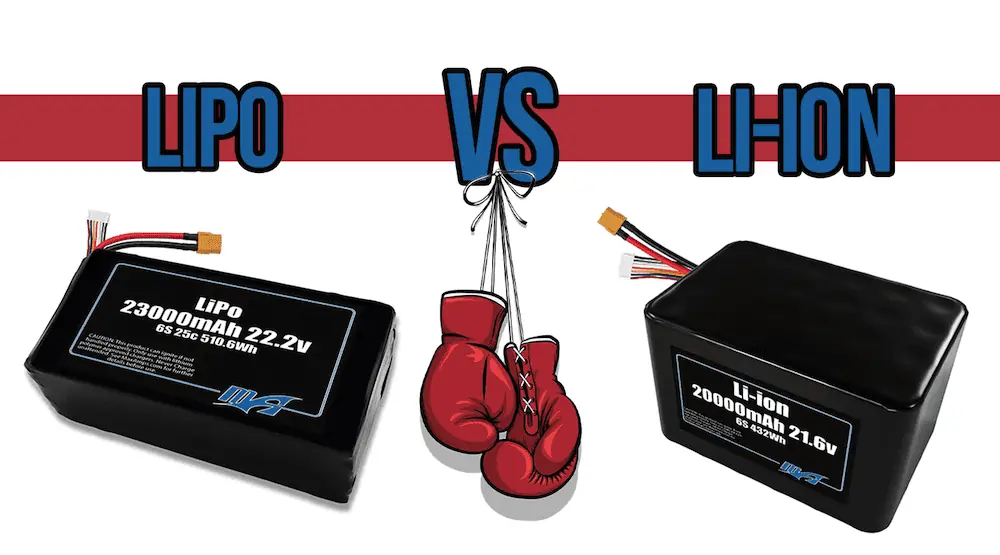In this article, MaxAmps discusses the pros and cons of using Lithium Polymer Pouch Cells (LiPo) and Lithium-Ion Cylindrical Cells (Li-ion) for unmanned aerial systems and robotics applications.
When deciding on a battery for your UAV, UAS, RC, or robotics application, choosing between LiPo (lithium polymer pouch cells) and Li-ion (lithium-ion cylindrical cells) can be difficult. If you are looking for power, a LiPo might be your style. But if you’re looking for endurance, Li-ion is probably the way to go. Let’s dig in and see the pros and cons of both.
Pros of Lithium Polymer (pouch cells):
- LiPos hold the highest voltage under load of all lithium batteries so they perform well in high amp draw applications
- LiPo batteries come in many different form factors so they can be built to fit lots of applications
- Maintains lower temperatures under high discharge
Cons of Lithium Polymer (pouch cells):
- LiPos are more prone to thermal runaway when punctured or damaged
- LiPo batteries provide around half the life cycles of a Li-Ion
- Can be discharged down to 3v per cell
Pros of Lithium ion (cylindrical cells):
- Li-ion batteries are higher energy density (Wh/kg) which allows for longer runtimes and lighter weight
- Lithium-ion batteries are safer than lithium polymer because of the metal enclosure
- Can be discharged down to 2.5v per cell
Cons of Lithium ion (cylindrical cells):
- In high amp draw applications, they will have lower voltage under load compared to lithium polymer
- They are round cells in specific sizes which can create some limitations to fit in certain applications
- They tend to hold higher temperatures during and especially after performing a higher discharge rate
In summary, if you are looking for the highest voltage under load (punch or top speed) then choose a LiPo. If you are looking for the highest capacity for the weight (energy density), choose Li-ion. If safety is a big concern, then choose Li-ion.
If you have any more specific questions or want more information on which is better for your application, contact our battery tech team.











